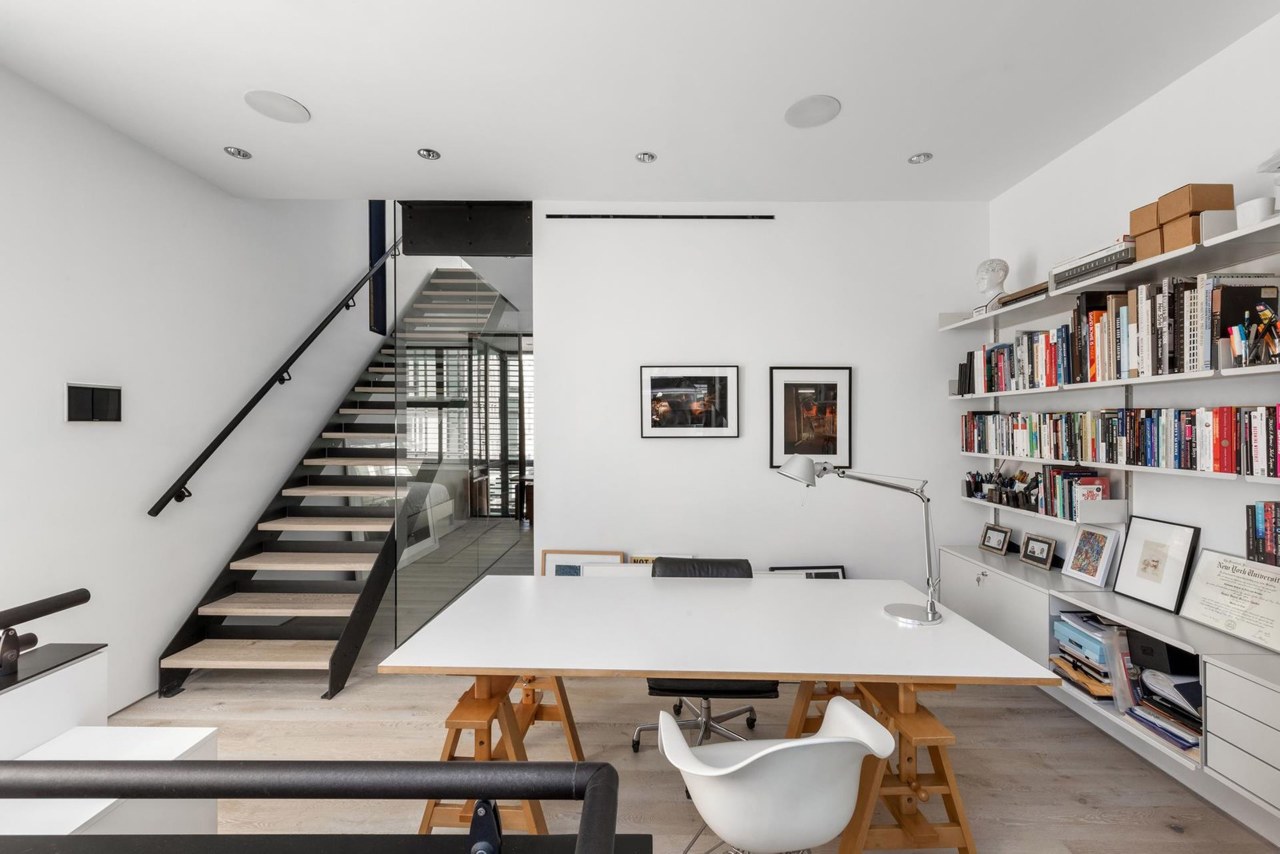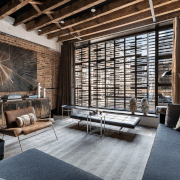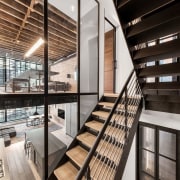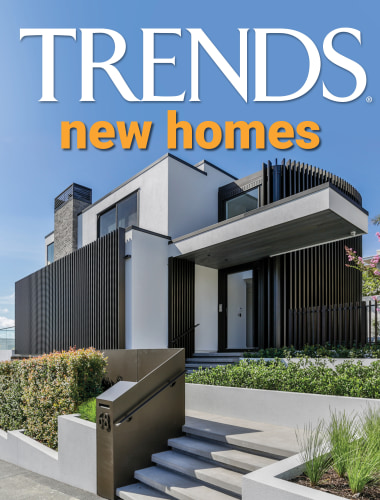Future of the city – an open and shut case
This Manhattan townhouse represents an innovative approach to densification in a city challenged by housing shortages and skyrocketing prices
Designed by Archi-Tectonics
From the architects:
Archi-Tectonics converted a long and narrow industrial structure in SoHo into a spacious and flexible 8-storey family home.
The size of the space was doubled by adding a 4-storey structure to the original townhouse, and by unifying the two volumes with a 3d envelope: the 'climate skin'.
Climate skin
The townhouse is inscribed within the climate skin, a spacious lattice envelope made of lightweight steel and folding panels clad with Trespa™ slats.
When closed, they appear as one smooth surface, but when opened, they fold out like feathers of a bird's wing.
Like an intricate lacework dress, the sheathing changes character and appearance at different times of the day and view angles, and serves as both filter and amplifier between the privacy of the house and the public streetscape.
The climate skin does not stop at the facade, it wraps up and over the multi-level roofs, creating a private outdoor room with green roofs and outdoor dining.
Extensive prototyping assisted in optimising the movement of the trellis panels.
This way, the façade can fold and slide open depending on the residents’ changing needs, as well as simultaneously connecting to or enclosing from the outdoors.
The individualistic facade also poses interesting solutions for sustainability.
By making the climate skin operable, residents can adjust ventilation, light, shade, and temperature so that the building naturally adapts to environmental conditions.
In warmer months, the climate skin reduces interior radiation and lowers the need for air-conditioning.
In colder months, opening the climate skin increases interior radiation and reduces the need for heating.
Interiors
Inside, the project pays respect to the building’s history by restoring the existing brick and up-cycling materials.
The black steel in the original building is used throughout the house, such as in the staircase that runs through all eight storeys of the house lit from above by a glass roof.
At the top, the stairs turn 90 degrees and move up to the bulkhead where we find a perfect meditation spot, with its window box penetrating the climate skin, overlooking SoHo.
To enhance the building’s small floorplates spatially, each floor contains a program connected through double-height voids, such as between the kitchen and dining area, and between the study and master bedroom.
These allow for spatial interlacing and long views throughout.
Double-height windows, a skylight, and a dramatic south-facing continuous window slot bring ample light into what could otherwise be a dark and narrow living space.
Altogether, these highlight the sensation of extreme verticality and transform mundane everyday tasks into a dynamic spatial experience.
Impact
The conversion not only provides residents with a diversity of elegant living, working spaces and generous outdoor areas, but also respects the existing characteristics of the city and poses a potential future for urban living.
The climate skin’s adaptability to environmental conditions represents a rethinking of the residence’s footprint on the environment, and reduces energy costs.
It anticipates future, more sustainable design approaches to urban living.

Credit list
Architects
Partner in charge
Consultant structural engineer
Principal in charge
Main contractor
Mechanical engineers
Designed by: Designed by Archi-Tectonics
Story by: Trendsideas
Photography by: Various – images individually credited
Home kitchen bathroom commercial design


















